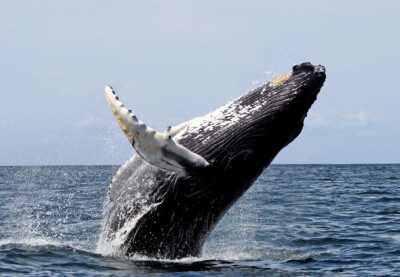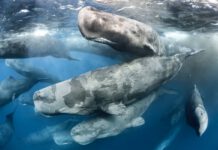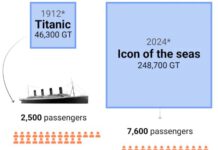
ST JOHN’S, N.L./TRADITIONAL TERRITORY OF THE BEOTHUK AND MI’KMAQ – The Federal Court has dismissed a lawsuit challenging the federal government’s assessment of the ecosystem impacts of exploratory oil and gas drilling off the coast of Newfoundland and Labrador, and the regulation which exempts all future exploratory drilling from assessment.
In a decision released Monday, Justice Bell determined that a Regional Assessment for exploratory drilling in the area was – in his opinion – satisfactory and upheld a regulation exempting future projects in the region from further scrutiny under the Impact Assessment Act (IAA).
Lawyers from Ecojustice represented the Sierra Club Canada Foundation, World Wildlife Fund Canada, and Ecology Action Centre on the matter. The groups say they are disappointed in the decision and concerned it sets a disturbingly low bar for the standard that Regional Assessments must meet under the IAA. The groups also warn the decision sets a dangerous precedent that blanket exemptions may be used in the future to accelerate development across the country without proper scrutiny.
The groups are currently reviewing the decision and exploring the possibility of an appeal of the Court’s decision. They released the following statements:
James Gunvaldsen Klaassen, lawyer, Ecojustice said:
“We are disappointed with the Court’s decision. It leaves marine ecosystems off the eastern coast of Newfoundland and Labrador, and the communities that depend on them, vulnerable to the dangerous effects of offshore oil drilling.
“We are in a climate emergency. The people of Newfoundland and Labrador, and all Canadians, must be able to trust that all projects, including fossil fuel projects, will only proceed if they pass a proper assessment and their impacts on the environment are accounted for and mitigated. This decision weakens environmental protections under the Impact Assessment Act and further weakens public trust in the effectiveness of the laws intended to protect our environment.”
Sigrid Kuehnemund, Vice President, Wildlife & Industry, WWF-Canada says:
“It’s discouraging that in the midst of dual climate and biodiversity crises, the Court’s decision fast tracks risky oil and gas exploration in a vast expanse of Newfoundland and Labrador’s offshore and eliminates the need for further environmental assessment and public scrutiny. The area now open for exploration includes sites set aside for protecting marine biodiversity, which should be off limits to oil and gas activity, including the Northeast Newfoundland Slope Marine Refuge, which was created to protect slow growing fragile cold-water corals and sponges. The decision undermines Canada’s commitments to marine conservation and climate change targets.”
Gretchen Fitzgerald, National Programs Director, Sierra Club Canada Foundation says:
“Despite this devastating judgement, the issues we flagged throughout this deeply flawed process remain and we call on the Minister of Environment to address them and end new offshore oil drilling. Rampant rollout of offshore drilling via this assessment and deregulation is completely inconsistent with Canadian and global climate commitments and threatens biodiversity. Seismic blasting, which precedes drilling, damages habitat for critically endangered whales. Not a single drop of oil has been cleaned up from recent spills in the offshore, and ramping up exploratory drilling will put marine life at even greater risk. ”
Jordy Thomson, Senior Marine Coordinator (Ecosystems), Ecology Action Centre, said:
“This decision is a sobering reminder of how far we still have to go in Canada to meaningfully address the biodiversity and climate crises. Strong impact assessment laws are crucial for safeguarding our environment. The court’s ruling upholds a troublingly low standard for regional-scale assessments under the IAA and leaves the offshore ecosystems of Newfoundland and Labrador at risk. Furthermore, at a time when all signs are telling us that we need a just transition away from fossil fuels, this decision takes us in the wrong direction by allowing for accelerated oil and gas exploration.”
Ecojustice
www.ecojustice.ca











